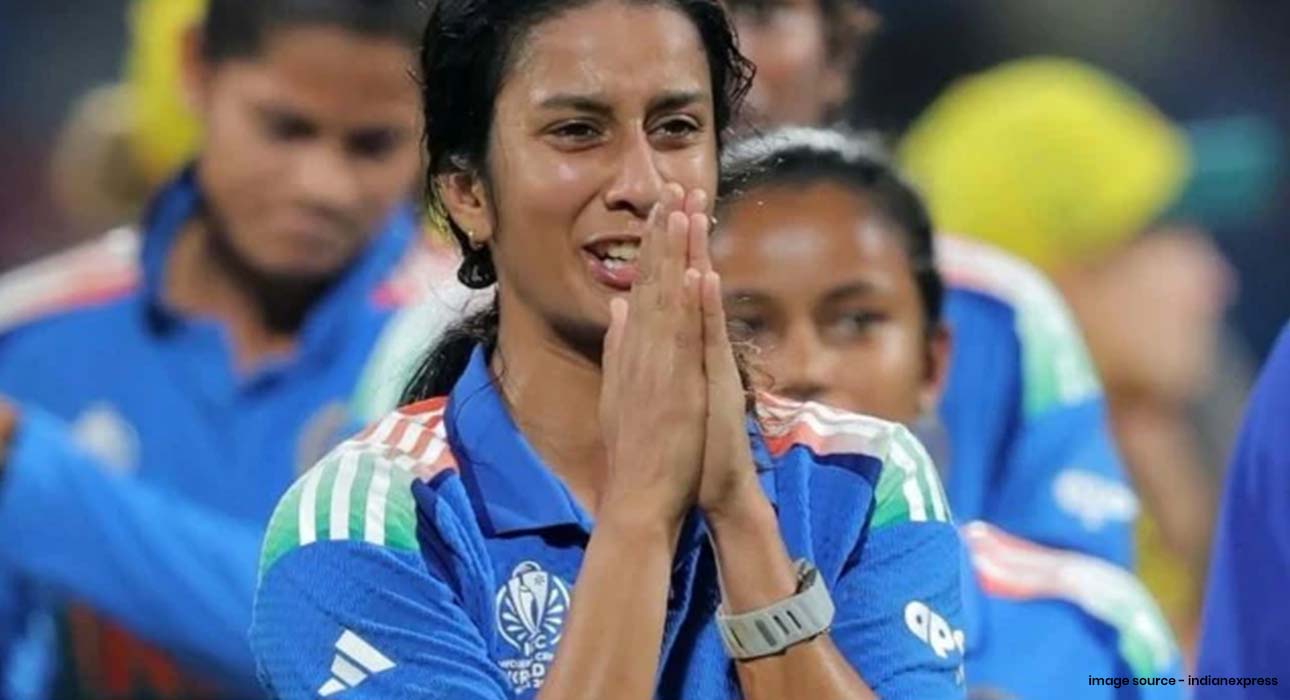On 2nd November 2025, the world witnessed the Women’s Indian cricket team winning the ICC Women’s World Cup 2025. Before the semi-finals against Australia, Jemimah Rodrigues, a rising cricket star who won the “Player of the match” in the semi-final, revealed her journey of anxiety in the post-match presentation. Jemimah shared in front of the press that she would be very vulnerable as she shared her experience of anxiety. Her goal behind this was to openly talk about the mental health struggles of athletes, as she knows that someone else would be going through the same.
Jemimah had an unbeatable score of 127 runs in 134 balls, including 14 boundaries, in the semi-finals. Though she was dropped from the team last year and however she was taken in to play at the number three position during the World Cup ‘2025. Her dropping from the team really hit her self-confidence and brought in a lot of self-doubt. In the concluding statement, she thanked everyone who shouted, chanted, believed, and cheered for her through the strands.
Read More: Yuvraj Singh Talks about Cricketers’ Mental Health & Why They Should Invest In It
What is Anxiety?
Anxiety brings in both physical and psychological symptoms, including a racing heart, sweaty palms, shallow breathing, headaches, intrusive thoughts, and feeling overwhelmed. When the pattern of anxiety starts interfering with an individual’s everyday life, it becomes an anxiety disorder. According to the statistics of the World Health Organisation (WHO), anxiety disorders are the most common mental health issues affecting over 359 million people across the globe (2021). Also, women are affected by anxiety disorders more than men.
Disclaimer: For a proper diagnosis, a professional is required who would conduct a diagnostic assessment with the individual.
Read More: The Hidden Gift of Anxiety: How Worry Helps Us Plan, Prepare, and Thrive
Emotional World of Athletes: Anxiety and Support
Rodrigue shared that the tournament as a whole was mentally draining for her; she would cry almost every day. Throughout this journey, she was supported by her parents and teammates. Crying is a form of catharsis that is a natural way to let out emotional buildup. When people listen to our struggles without judgment, we feel a sense of belongingness and safety.
She shared with the press and audience, “I will be very vulnerable here because someone who is watching this might be going through the same thing. Nobody likes to talk about their weaknesses. I was going through a lot of anxiety at the start of the tournament. It was a lot before a few games…I used to call mum and cry the entire time, let it all out because when you go through anxiety, you feel numb. There was Smriti who helped me…she just knows whose presence is important for me. I am so blessed to have friends who I can call family, so that I don’t have to go through it alone. And it’s okay to ask for help.”
Athletes & Mental Health
Jemimah is not the first person to share about mental health struggles; there have been many athletes who have shared similar experiences. However, her revealing story has sparked conversations around challenges faced by athletes in high-pressure situations and how essential mental health support is for them. Therefore, sport psychologists must be hired as a part of a team to help build resilience among players and provide them with the required support.
